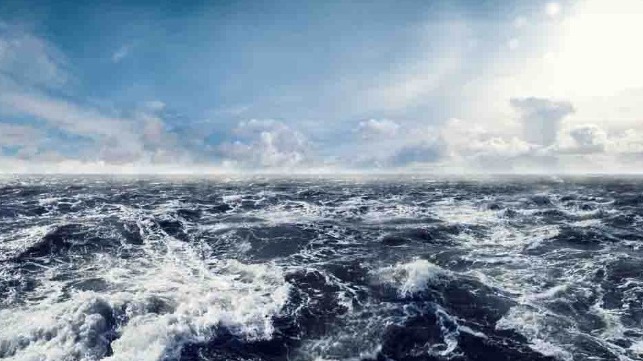Wave Energy Converter Doubles Power Generation in Lab Tests

Researchers in Australia and China have developed a prototype technology that they believe can double the power harvested from ocean waves. In laboratory tests they report that they have been successful at increasing the power drawn from the ocean with a design that is simpler and less cost-intensive to deploy. If successful in a full-scale model test, the researchers believe that their technology could be the key to the commercialization of power generation from ocean waves.
“Our prototype technology overcomes some of the key challenges that have been holding back the wave energy industry from large-scale development,” said lead researcher Professor Xu Wang at RMIT University in Melbourne, Australia. “With further development, we hope this technology could be the foundation for a thriving new renewable energy industry delivering massive environmental and economic benefits.
According to Professor Wang and his collaborators from Beihang University in China, the challenges of developing technologies that can be efficient extracting the natural power and withstanding the harsh environment have “kept wave energy stuck at the experimental stage.”
Most of the concepts being explored for wave energy generation use a buoy-type device that harvests energy by moving up and down with the waves, but need to be synchronized with the wave movement. This involves a series of sensors, actuators, and control processors.
The RMIT prototype naturally floats up and down without the need for sensors. It uses counter-rotating dual turbine wheels. Two turbine wheels are stacked and rotate in opposite directions. They are connected to a generator through a shaft and belt-pulley driven transmission system. The generator is inside a buoy above the water to keep it out of corrosive seawater.
“We know it works in our labs, so the next steps are to scale this technology and test it in a tank or real-life ocean conditions,” said Wang. During the lab tests, the RMIT-created wave energy convertor was twice as efficient at harvesting power as any similar technology developed to date.
According to RMIT, wave energy could play a significant role in renewable power generation. They reported that it has been estimated that each year power from coastal waves around the world is equivalent to annual global electricity production.
No comments:
Post a Comment